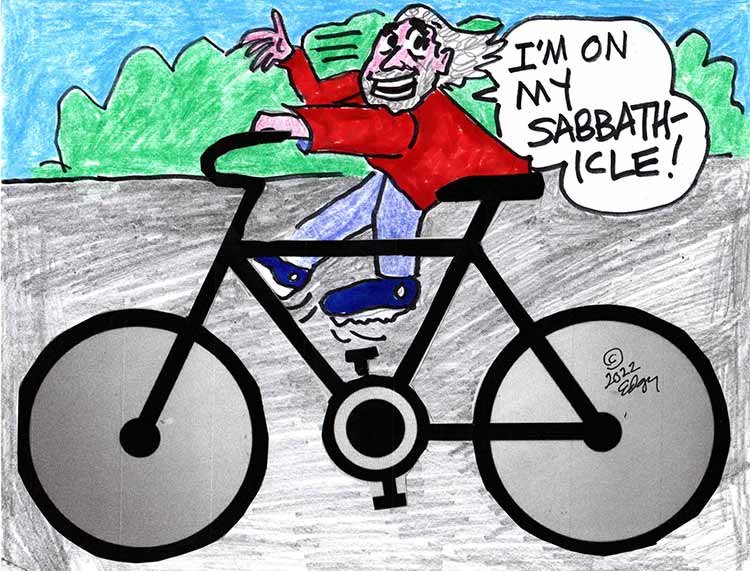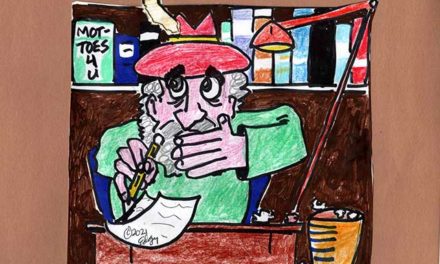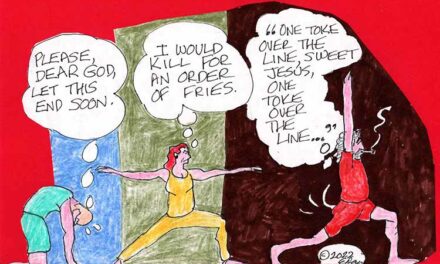Sabbaticals: Making Employees Leave To Keep Them
They’re not just for professors and lawyers anymore
By Ed Goldman
When I first heard the word “sabbatical” I thought it was “sabbathicle” and referred to a bike you could ride only on Saturday or Sunday, depending on your religion,
I’d like to tell you I was a little kid when I thought that, in the fervent hope you’d think I once was terribly adorable. But I think I was in my late 40s when I learned what a sabbatical really was. I wasn’t terribly adorable in my late 40s. Not even marginally precious. And it hasn’t improved.
Spokesperson
Sabbaticals have been on my mind lately because they’ve become a recruitment or retainment tool as the corporate world continues its transition from desk set to dinette set.
While we tend to think that sabbaticals happen in only academia and the legal profession, the Wall Street Journal reports that five percent of U.S. companies offered them in 2019—and that because of the pandemic, that percentage will rise to stem the figurative hemorrhaging of employees. The notion is that it’s more cost-effective to give people a six-month job break than to lose them forever. (Incidentally, I’m not sure why the most recent statistics are now three years old but I suspect it’s because some of the statisticians took sabbaticals.)
A website called cornerstoneondemand.com recently offered seven reasons that sabbatical programs work (these are mercilessly edited but nonetheless direct quotes):
- Employees return rejuvenated and often feel like they have a new job;
- Employees find inspiration for new ways to grow the business;
- Employees can focus on personal goals. perspective and makes personal and professional priorities clearer;
- Younger employees have the opportunity to grow in their roles;
- Employees are encouraged to stay with the company;
- Companies show they care about what employees want and need; and
- Companies experience reduced employee turnover.
Ever since I heard about sabbaticals, I’ve dreamed of taking one but there was always a catch: I had to have a job from which to take one. I’ve been a freelance everything since 1984 (I’d have said “I’ve been working for myself since 1984” but I think all of you know that’s silly; I’m pretty sure I have far more bosses than most of you do). If I took six months off it would be because of catastrophic illness, a shredded ACL or a fairly lenient prison sentence. No editors, publishers or marketing clients would pay me to “find myself” as many sabbatical takers claim is their motivation (to find themselves, not myself).
And the fact is, most writers don’t really get away from being writers, just as it’s said that a bus driver’s favorite vacation may entail renting an RV and taking the family on a lengthy voyage (one that includes visiting monuments and Arby’s drive-throughs; this is why their vacation souvenirs often include keychain replicas of the monuments and little packets of Arby’s famed Horsey Sauce).
On the other hand, I’ve never been the kind of writer who leaves home for several weeks to complete a play or book. I have an office inside my home where I can do that. If I go someplace wonderfully scenic, I’m not likely to cart my laptop up a mountain, load it into the cargo hold of a ship nor strap it to my backpack.
But if I do go on a hiatus—and it does include a Saturday or Sunday—I’ll definitely ride my sabbathicle.
Big news! Clinique is now on Amazon.
The #1 dermatologist guided skincare and makeup brand is on Amazon Premium Beauty for the first time. Shop trusted formulas across skincare, makeup, fragrance, and men’s products.
Ed Goldman's column appears almost every Monday, Wednesday and Friday. A former daily columnist for the Sacramento Business Journal, as well as monthly columnist for Sacramento Magazine and Comstock’s Business Magazine, he’s the author of five books, two plays and one musical (so far).












